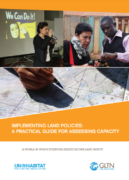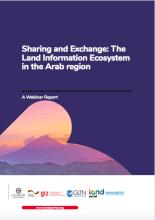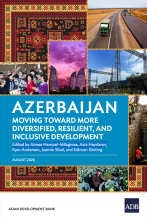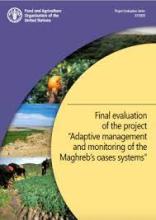Land Library Search
Through our robust search engine, you can search for any item of the over 73,000 highly curated resources in the Land Library.
If you would like to find an overview of what is possible, feel free to peruse the Search Guide.
/ library resources
Showing items 1 through 9 of 132.This one-pager provides details on the LAND-at-scale project in Chad. This project is implemented by Kadaster International and Oxfam Novib, and financed by the Ministry of Foreign Affairs via the Netherlands Enterprise & Development Agency.
This one-pager provides details on the LAND-at-scale project in Mali.
This one-pager provides details on the LAND-at-scale project in Rwanda. This project is implemented by Kadaster International and IDLO, and financed by the Ministry of Foreign Affairs via the Netherlands Enterprise & Development Agency.
The Netherlands Enterprise Agency (RVO) supports entrepreneurs in sustainable, agrarian, innovative and international business and cooperation. Its support includes grants and other support instruments, finding business partners, know-how, and guidance to comply with laws and regulations.
A lack of capacity in the land management and administration is a key reason that land policies are not effectively implemented in many countries and, indeed, is a reason that those policies are inappropriate or become outdated.
It is widely understood that effective use of land, the sustainable production of food and development are linked.
Azerbaijan has set the course for the economy to reduce its dependence on oil by promoting new drivers of growth. This publication emphasizes the need for diversification, particularly in the agriculture, tourism, and manufacturing sectors.
The Maghreb's oases systems provide a major contribution to the region's food security, economy and natural resources. Despite this potential, oasis ecosystems are threatened by a range of complex factors related to the expansion of agricultural land and increasing scarcity of water resources.
The project ‘Grounded Legitimacy’ explored how interventions in land governance by development organizations feed into the legitimacy of state and non‐state public authorities, and how these development organizations may better take ‘legitimacy’ into account.





